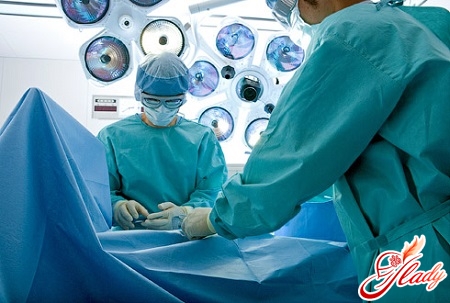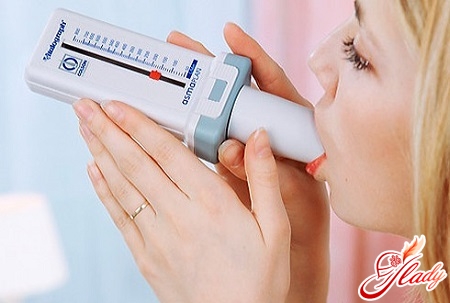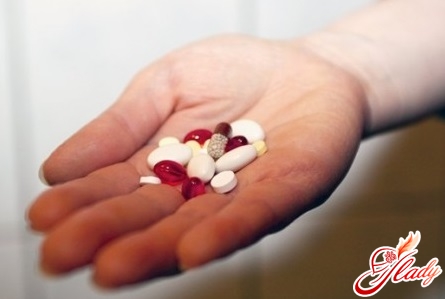 To be healthy, you need to eat morevitamins - even small children know this. But what exactly are vitamins? To this question, perhaps, not everyone will answer. Vitamins are substances, small amounts of which are necessary for the body for its normal life. They take part in many of the most complex processes that occur in our body. Some vitamins can be "produced" by the body itself, but the overwhelming majority of them are either produced in insufficient quantities, or - as a rule - completely must come from outside, with food or in the form of medicines. Everyone knows that vitamins are called letters of the Latin alphabet. There is, for example, vitamin C, vitamin K or, vitamin A. But why among these vitamins stands out a whole "team" of vitamins B? The fact is that their discoverer, the Polish scientist Kazimir Funk, was convinced that vitamin B is one substance. And only later the researchers revealed a whole group of nitrogenous compounds (that is, containing nitrogen in their molecules) compounds. At different times, up to twenty B vitamins were isolated, starting with vitamin B1 and ending with vitamin B20. Now it is considered that only nine substances belong to this group: Vitamin B1 (thiamin, aneurine):
To be healthy, you need to eat morevitamins - even small children know this. But what exactly are vitamins? To this question, perhaps, not everyone will answer. Vitamins are substances, small amounts of which are necessary for the body for its normal life. They take part in many of the most complex processes that occur in our body. Some vitamins can be "produced" by the body itself, but the overwhelming majority of them are either produced in insufficient quantities, or - as a rule - completely must come from outside, with food or in the form of medicines. Everyone knows that vitamins are called letters of the Latin alphabet. There is, for example, vitamin C, vitamin K or, vitamin A. But why among these vitamins stands out a whole "team" of vitamins B? The fact is that their discoverer, the Polish scientist Kazimir Funk, was convinced that vitamin B is one substance. And only later the researchers revealed a whole group of nitrogenous compounds (that is, containing nitrogen in their molecules) compounds. At different times, up to twenty B vitamins were isolated, starting with vitamin B1 and ending with vitamin B20. Now it is considered that only nine substances belong to this group: Vitamin B1 (thiamin, aneurine):
- participates in carbohydrate and amino acid metabolism;
- strengthens the nervous, immune muscle systems;
- improves the functioning of the stomach, intestines and liver;
- reduces the likelihood of vascular and heart disease.
Thiamine produces bacteria that live inintestines. However, this amount is not enough, so vitamin B1 should additionally enter the body with food. Contained in cereals, bran, legumes, sprouted grains, rosehips, nuts, cabbage, potatoes, milk, eggs, pork, veal. Vitamin B2 (riboflavin) - is considered one of the most important for human vitamins. The lack of it affects the condition of nails, hair, skin:
- participates in a variety of biochemical reactions;
- improves the restoration of damaged tissues;
- protects the retina from the adverse effects of sunlight.
Contained in yeast, dog rose, beans,cabbage, tomatoes, spinach, milk, eggs, liver, apricots, and also in leafy vegetables of dark green color. Unlike most B vitamins, riboflavin is fairly resistant to high temperatures. Vitamin B3 (nicotinic acid, niacin, vitamin PP):
- participates in the breakdown of fats and sugars;
- Favorably affects the vessels, heart, liver, pancreas;
- reduces the content of cholesterol and triglycerides in the blood;
- prevents the formation of blood clots;
- improves the activity of the nervous system;
- increases the production of gastric juice;
- participates in the formation of hormones (insulin, cortisone, thyroxine, estrogen, progesterone, testosterone).
It is found in white chicken meat, liver, kidneys, cheese, eggs, fish, tomatoes, mushrooms, green peas, peanuts, potatoes, beans, brewer's yeast and some herbs. Vitamin B4 (choline):
- prevents the breakdown of the nervous system;
- prevents the formation of gallstones;
- prevents vascular and heart disease, normalizes the rhythm of the heart, strengthens the myocardium (heart muscle);
- participates in the breakdown of fat and lowers the cholesterol in the blood;
- regulates the level of sugars in the blood;
- supports the work of the prostate gland in the elderly;
- improves mental abilities.
The main source of choline is the egg yolk. It is also found in the liver, cheese, cottage cheese, soy, peanuts, some vegetables. Can be synthesized in the body. Vitamin B5 (pantothenic acid) - is part of coenzyme A, an indispensable participant in many biochemical processes:
- a strong stimulant of adrenal function - so this vitamin is often prescribed for the treatment of arthritis, heart and vascular disease, as well as allergies;
- inhibits the formation of cholesterol;
- accelerates the breakdown of fats.
It is found in almost any foodstuff(which is why vitamin B5 is called pantothenic acid - from the Greek word pantoten - everywhere). Lack of pantothenic acid is possible only if there is a violation of its absorption in the intestine (bowel disease, stress, prolonged treatment with antibiotics). Vitamin B6 (pyridoxine):
- strengthens the immune system;
- participates in the process of hematopoiesis;
- regulates blood pressure;
- improves the functioning of blood vessels and heart;
- improves memory, strengthens the brain;
- prevents the development of heart attacks, strokes, atherosclerosis.
A significant amount of vitamin is contained insprouted grain (this product is extremely rich in Group B vitamins), spinach, nuts, cabbage, potatoes, beans, carrots, strawberries, cherries, citrus fruits, tomatoes, liver, eggs, fish, meat products. It is synthesized by normal intestinal microflora. Vitamin B7 (vitamin H, biotin):
- takes part in carbohydrate metabolism, regulates the amount of sugars in the blood;
- enhances fat burning;
- contains sulfur, necessary for the health of the skin, nails and hair (that is why biotin is sometimes called a vitamin of beauty);
- is necessary for trouble-free operation of the nervous system;
- improves the vital activity of useful intestinal microflora.
It is found in almost all products. The maximum amount in eggs, nuts, soy, liver, yeast, milk, red beets, ceps, strawberry and blueberry leaves. In a small amount can be synthesized by the body. It is worth noting that alcohol and antibiotics interfere with the assimilation of B vitamins. This applies especially to biotin. Vitamin B9 (folic acid, vitamin B-c):
- participates in the processes of hematopoiesis, the formation of erythrocytes, the synthesis of hemoglobin;
- prevents atherosclerosis;
- lowers cholesterol in the blood;
- regulates the work of the nervous system, prevents the emergence of stressful conditions;
- strengthens the formation of hydrochloric acid in the stomach, improves appetite;
- plays a huge role for the normal coursePregnancy: reduces the likelihood of miscarriage, premature birth, reduces the risk of postpartum bleeding. Participates in the formation of the organs of the future baby.
This vitamin is found in cabbage, beans,spinach, green onions, carrots, beets, tomatoes, coarse flour, brewer's yeast, egg yolk, cheese, caviar, cottage cheese, liver. It is synthesized by normal intestinal microflora. Quickly destroyed when heated. Vitamin B12 (cyanocobalamin):
- takes part in cell division;
- affects immunity and hematopoiesis;
- participates in the work of the nervous system;
- participates in the formation of skin cells, the epithelium (inner shell) of the intestine, as well as the myelin sheath of nerves;
- is necessary for normal liver function;
- improves the digestive system;
- together with folic acid is involved incarbohydrate and fat metabolism, in the process of formation of blood cells. Both these vitamins are necessary for the synthesis of nucleic acids necessary for the transfer of genetic information.
Unlike other B vitamins,plant food is not contained. The source of cyanocobalamin are meat products, primarily the heart, kidneys, liver. Contained also in fish, milk, egg yolk, cheese, seafood. 
Together better than apart
Despite the fact that each of these vitaminshas for the organism its special significance, they are all absolutely necessary for the normal functioning of the immune and nervous systems, the growth of the organism and are important participants in the energy exchange. It is noticed that together these vitamins are faster coping with the problems of the body than singly. If we eat incorrectly - a deficiency is found, again, in all the vitamins immediately. Therefore, they are appointed more often than not individually, but by a whole complex. The stock of B vitamins in the body must be replenished daily - after all, these substances are easily soluble in water, which means that they are quickly eliminated from the body. When the deficiencies of these vitamins quite quickly manifest symptoms of avitaminosis B:
- depression;
- fatigue;
- muscle weakness;
- decreased immunity;
- in women, symptoms of PMS are worse.
In order to avoid these troubles, many complex preparations and bioadditives are created, with some vitamins of group B, and sometimes even with their complete "set".
Vitamins B in tablets
At pharmacy counter today you can meet B group vitamins in tablets - both singly and in combination with other vitamins and minerals. We will consider only a few of them.
- Brewer's yeast
The fact that drinking brewer's yeast helpsto save face from acne, improves the condition of nails and hair, people have known for a long time. And in the course of scientific research it was also found out that due to the presence of B vitamins in brewers yeast regulate the level of sugars in the blood, reduce the content of "harmful" cholesterol. Today on the shelves of pharmacies you can find a variety of food additives based on brewer's yeast. However, if you intend to use supplements enriched with any mineral substances, it is advisable to consult with your doctor beforehand and take tests to know exactly which minerals your body lacks. If you are concerned about your weight - keep in mind that brewer's yeast increases appetite, and some ladies, taking this supplement, grow fat literally "as a leap."
- Doppelgerz Magnesium active plus B vitamins
Doppelgerz Active Magnesium plusVitamins of group B complex of vitamins belonging to group B, supplemented with magnesium. It is established that magnesium perfectly interacts with Group B vitamins, improving their effect on the body. This element itself participates in the metabolic processes of the body, improves the functioning of the heart, eliminates the disturbances of its rhythm. Improves blood circulation by dilating blood vessels. Magnesium favorably affects the nervous system, has anti-stress action. By facilitating the stabilization of glucose levels, magnesium is extremely useful in non-insulin dependent diabetes mellitus, as well as mental and physical exertion. Attention: the bioadditive is contraindicated in pregnancy and lactation. Individual intolerance to certain components of dietary supplements is also possible.
- A series of bioadditives "Alphabet" with vitamins of group B in tablets
Manufacturers of these vitamin biologicaladditives have tried to take into account the compatibility of various vitamins and minerals. For example, the beneficial interaction of vitamin B6 and magnesium. And also scientific data that vitamin B12 can strengthen the manifestation of allergy to vitamin B1, and vitamin B6 somewhat reduces the positive effect of the same vitamin B1 on the body. In addition to the above, on the shelves of pharmacies you can find a variety of drugs and dietary supplements with vitamins of group B. When choosing vitamins, note that many supplements are not recommended for pregnancy and breastfeeding - mainly due to the fact that their possible impact on the future (or newborn) the baby is still not sufficiently studied.
Overdose of Group B vitamins
We have already said that all of the above vitamins are easily eliminated from the body. Therefore, an overdose of B group vitamins is extremely rare. It is noted that:
- Prolonged hypervitaminosis of vitamin B1 can cause disruption of the liver and kidneys. Of all the B vitamins, this particular vitamin most often causes allergies.
- Excess nicotinic acid causes reddening of the skin of the face, chest and neck, a feeling of heat.
- An overdose of pyridoxine can lead to circulatory disorders.
- Hypervitaminosis of folic acid leads todecrease in the amount of vitamin B12 in the body. There may be a decrease in appetite, sleep disturbances. In children, an excess of folic acid can cause excessive excitability.
Of course, vitamins that enter our bodywith food, they can not hurt us. But with the group B chemist's vitamins it's worth to be treated with care. Contrary to popular belief that vitamins are not medicines, it is necessary to remember that these are still chemicals. Therefore, when choosing a vitamin complex, it does not stop to consult your doctor. And, taking new "vitamins", carefully listen to yourself - do they "like" your body? We advise you to read:









